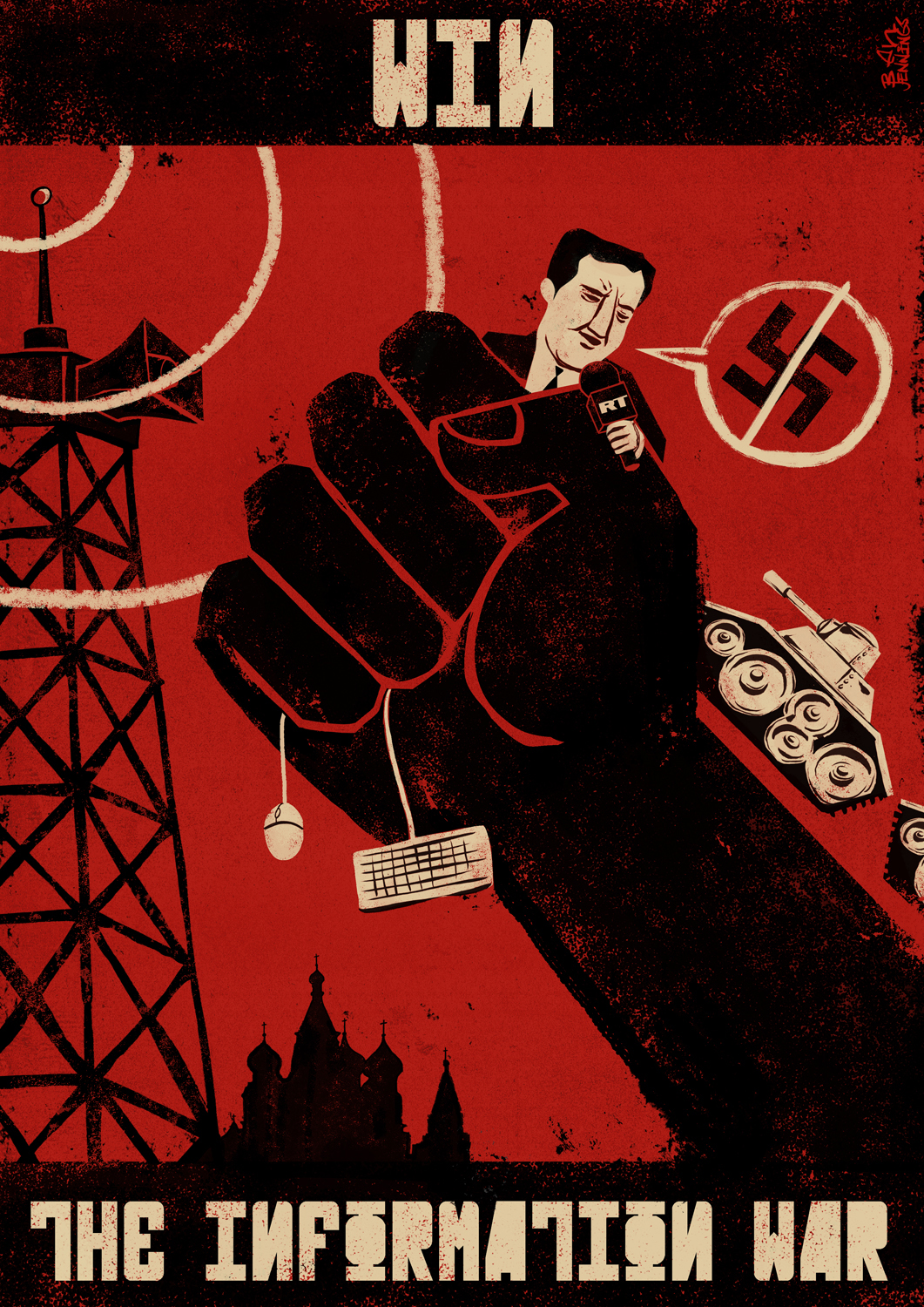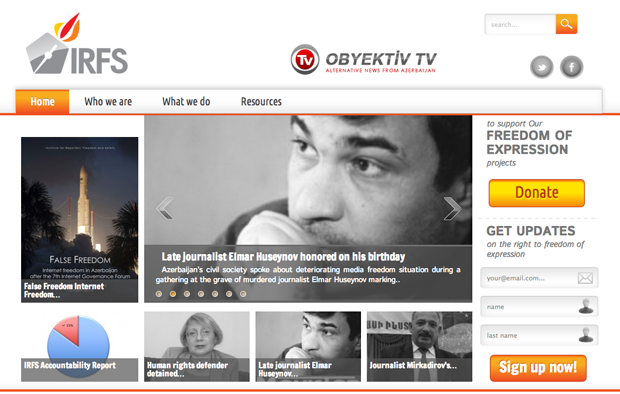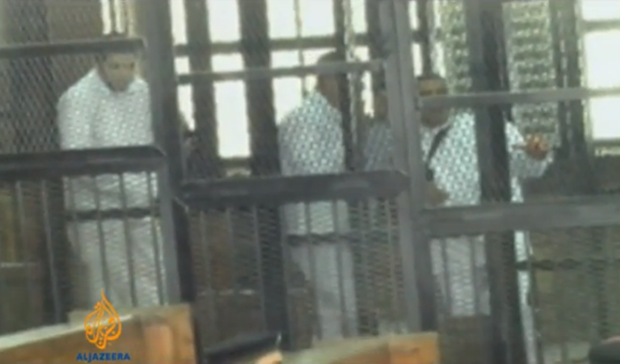12 Aug 2014 | Draw the Line, News and features, Youth Board

Ben Jennings for Index on Censorship
Draw the Line: We want to hear your thoughts on key free expression issues
Each month, our Youth Advisory Board will choose a free expression topic and encourage readers to respond to the issues it raises via social media. Draw the Line also features pieces from our Young Writers/Artists programme as well as relevant features from our award-winning quarterly magazine.
This month’s question: Do wars justify censorship?
The British government established the War Office Press Bureau 100 years ago this month to censor reports from the British Army before they were issued to the press. Colonel Ernest Swinton, the first man to be appointed the Army’s official journalist, wrote later: “The principle which guided me in my work was above all to avoid helping the enemy… I essayed to tell as much of the truth as was compatible with safety, to guard against depression and pessimism, and to check unjustified optimism which might lead to a relaxation of effort.”
During the First World War, censorship was deemed crucial to send the public the right messages, and keep the enemy in the dark about tactics.
Today, especially in times of war, governments continue with their attempts to control what the public and the outside world are told, often in the name of national security.
Amid the conflict in Israel and Gaza, both sides have been guilty of clamping down on free speech and the press.
Israel last month conducted three air strikes on buildings housing media outlets in Gaza, injuring at least three journalists and, according to the Committee to Protect Journalists, violating international law.
On the Palestinian side, Hamas expelled Russia Today journalist Harry Fear after he referred to the location of rockets fired towards Israel on Twitter, and a university lecturer was arrested for criticising Palestinian president Mahmoud Abbas on Facebook.
As the internet provides a platform for everyone to publish information that might aid the enemy, reporting restrictions that were once limited to the work of journalists extend into the personal lives of us all.
In times of war, can censorship be justified in the name of keeping us safe? Or is national security simply an excuse used by governments to clamp down on their critics?
Participate in the discussion by tweeting your thoughts with the hashtag #indexdrawtheline and follow responses at Draw the Line.
8 Aug 2014 | Azerbaijan, Azerbaijan News, Europe and Central Asia, News and features

(Image: IRFS)
The offices of Azerbaijani press freedom organisation Institute for Reporters’ Freedom and Safety (IRFS) were on Friday searched by police – the latest in a new clampdown by authorities on human rights groups in Azerbaijan. Human rights lawyer Intigam Aliyev also had his home searched, and has been sentenced to three months pretrial detention.
The IRSF offices were today surrounded by police officers according to reports from Azerbaijan. There are unconfirmed reports that Emin Huseynov, the head of the organisation, has been detained. He was already under a travel ban.
Over the past two weeks, human right defenders Leyla and Arif Yunus and Rasul Jafarov have been sentenced to three months of pretrial detention, facing charges including high treason, state betrayal and tax evasion. One of the country’s few remaining independent newspapers, Index Award winner Azadliq, has been forced to suspend publication due to financial troubles.
IRFS has been reporting on these and other instances of apparent state targeting of opposition voices. The NGO was founded in 2006, “in response to growing government restrictions on freedom of expression and freedom of press,” according to their mission statement. The latest global press freedom index from Reporters Without Borders ranks Azerbaijan at 160 out of 180 countries, and the recent estimates puts the number of political prisoners in the country at over 140.
The recent cases have taken place against a backdrop of heightening tensions between Azerbaijan and neighbouring Armenia, which so far has left at least 14 people dead. President Aliyev on Thursday published a series of tweets on his personal Twitter account which seemed to threaten war with Armenia. The troubled relationship between the two countries has also played a part in cases against dissidents, including Leyla Yunus who has been accused of spying for Armenia.
In May, Azerbaijan assumed chairmanship of the Council of Europe’s (COE) Committee of Ministers, whose tasks include “ensure[ing] that member states comply with the judgments and certain decisions of the European Court of Human Rights”.
In a statement on Friday, the COE said Secretary General Thorbjørn Jagland has “revealed his deep concern at the arrest of Azerbaijan human rights defender Leyla Yunus and the prosecution case against her husband Arif”.
“By stifling dissent, Azerbaijan is failing to comply with its international obligations which require safeguarding freedom of expression, assembly and association. It is necessary that Azerbaijan reverse the situation,” COE Commissioner for Human Rights Nils Muiznieks has told Azerbaijani media.
Index on Censorship, along with 60 other NGOs, has called for the immediate and unconditional release of Leyla and Arif Yunus and Rasul Jafarov. Today Index reiterates this call and raised its concerns with Britain’s Foreign and Commonwealth Office.
“It is deeply worrying that while international attention is directed at conflicts elsewhere, Azerbaijan appears to be resuming oppression of dissent,” said Jodie Ginsberg, CEO of Index on Censorship. “This is a country showing blatant disregard for human rights while presiding over an institution that describes itself as the continent’s ‘leading human rights organisation.’ The fellow members of the Council of Europe must do more to show Azerbaijan its actions must cease immediately.”
This article was published on August 7, 2014 at indexoncensorship.org
8 Aug 2014 | Draw the Line, Young Writers / Artists Programme

(Image: Al Jazeera English/YouTube)
Egypt’s recently sentenced three Al Jazeera journalists to seven years in prison under the country’s anti-terrorism laws. Others, tried in absentia, were given ten years. In light of this, the Index Youth Board this month asked Index’s younger readership to consider the question: When does giving a platform to extremist views through art or journalism become an act of terrorism? And should artists or journalists be exempt from terrorism laws, or should inflammatory works be banned?
Some readers expressed concern over how certain authorities might use the term “terrorism” too liberally, or even corruptly. A number of recent articles have questioned whether or not the UK’s legal definition of terrorism is too wide and threatens to criminalise us all; the board’s own Morgan Meaker wrote that “Branding artists as terrorists doesn’t silence them, it only proves their relevance.”
Index brought together young people to discuss the issue in two workshops, one in the organisation’s offices and one at the youth arts centre Platform in Islington. Both events sparked many new opinions and questions. Some pointed out the difficulty in defining works of art and journalism, while others debated whether or not anything that is trying to manipulate people’s thoughts can be considered an act of terrorism.
On the #IndexDrawtheLine Twitter feed the responses varied greatly, with some readers putting emphasis on the intentions behind the works in question, whilst others claimed that all art and journalism is politically loaded. What seems to be agreed on, however, is the issue of the viewer’s perspective. @lightielikeefua pointed out that a work of art or journalism can be misinterpreted as an act of terrorism if the government or the public doesn’t like or understand it; as @sboy9700 wrote, “One’s freedom fighter is another’s terrorist.”
Explore the responses to this month’s question on Draw the Line.
7 Aug 2014 | Europe and Central Asia, News and features, Turkey

Turkish Prime Minister Recep Tayyip Erdogan (Photo: Philip Janek / Demotix)
Shortly before campaigning for Turkey’s upcoming presidential election was officially set to begin, the director of public broadcaster TRT threatened to cut coverage of candidate Selahattin Demirtas. The reason? Demirtas had publicly criticised TRT for bias towards one of the three men in the running — outgoing Prime Minister Recep Tayyip Erdogan.
The case, reported by Index on Censorship’s media freedom mapping tool, is just one example of the challenges facing free expression in Turkey on eve of a vote that could alter its political system. When Turks go to the polls on Sunday, it will be in the country’s first direct presidential election. The consensus is that Erdogan will beat his opponents — Dermitas from the left wing People’s Democratic Party and Ekmeleddin Ihsanoglu, representing the centre-left Republican People’s Party and the far-right Nationalist Movement Party — comfortably; some predict after just one round. But what makes this election even more significant, is Erdogan’s declared intention to transform the presidency from a largely ceremonial role to a powerful office based on the US model. This would effectively allow him to remain in power despite being barred from re-election as prime minister by term limits.
Concerns have been raised about the impact of the state of free expression in Turkey on the election. The Organisation for Security and Cooperation in Europe (OSCE), in its capacity as an election observer, recently stated that “direct interference of media owners and political actors into editorial freedom results in a lack of independent and investigative journalism and leads to limited criticism towards the ruling party and the prime minister”. The interim report from its election observation mission published on 31 July, also highlighted shortcomings in the legal framework around impartiality of media coverage and the the country’s restrictive internet legislation.
This is at least in part backed up by Demirtas’ claims. According to research from Turkey’s broadcasting regulator, between 4 and 6 July, TRT gave 533 minutes worth of coverage to Erdogan, compared to 3.24 seconds for Ihsanoglu and 45 seconds to Demirtas. Erdogan has also been accused of blurring the lines between his role as prime minister and presidential candidate, and using resources and platforms exclusively available to him to rally support. The campaigns of Erdogan’s opponents “have been active, but with limited visibility”, as the OSCE put it.
Other recent media freedom cases go beyond questions of impartiality. Released just days before the election, a report by Bianet, a Turkish news site that monitors attacks on press freedom, showed that assaults on journalists is on the rise. As covered by Index, the research found that between April and June, there had been 54 attacks on journalists — between January and March, the figure was “at least” 40. The report also noted that 133 fines were handed out to various TV and radio institutions and continued impunity around attacks on the media. This follows the pattern of Turkey’s global press freedom ranking, which has deteriorated over the past years.
Internet freedom has also been dealt some blows in the lead-up to the election. The latest Twitter transparency report, published last week, showed that Turkey has submitted the highest number of content removal requests in the past six months — despite the fact that Twitter was banned in Turkey for two weeks in March and April. The social media platform has been used by many of the country’s 36 million internet users to have their say on political matters, most notably during last summer’s Gezi park protests — a topic Turkish playwright Meltem Arikan has written about extensively for Index.
More recently, Turkish social media was flooded with photos of grinning women, in protest at Deputy Prime Minister Bulent Arinc declaring that women shouldn’t laugh out loud in public. While the bans on Twitter and later also YouTube were short-lived, authorities continue to keep close tabs on the internet. Twitter user @fuatavni, who has almost one million followers, was blocked in Turkey after criticising the government. Earlier in July, Erdogan filed a legal complaint against the editor of Today’s Zaman, Bulent Kenes, over what he claimed were insulting tweets. This comes in the wake of controversial legislation passed in February, which gives the government wide-reaching powers in regulating the internet.
More about Turkey from mediafreedom.ushahidi.com:
Newspaper Agos, film director threatened on Twitter
News crew told to leave public event attended by minister
Greek daily newspaper in Istanbul closes
Broadcaster threatens to stop covering presidential candidate
Prime Minister files legal complainst against newspaper editor
This article was published on August 7, 2014 at indexoncensorship.org




